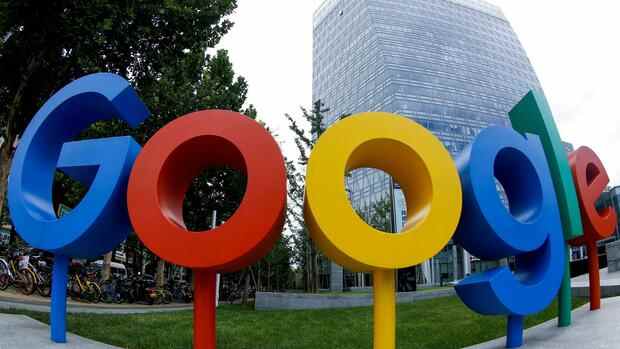San Francisco For the parent company of the search engine giant Google, the corona pandemic has so far worked like an economic stimulus program: Billions of people around the world had to digitize their lives almost completely from one day to the next. Whether for work, leisure or shopping: In the past two years, hardly anyone has passed offers such as search, the YouTube video service or the various office apps.
And even after the pandemic has subsided, the boom continues. Alphabet boss Sundar Pichai was again able to present strong results when the figures for the third quarter were presented. Compared to the previous year, the Group’s sales from Mountain View increased by 41 percent to a good 65.1 billion US dollars. Profit also increased by more than 68 percent to $ 18.9 billion. The advertising business contributed the majority of sales with $ 53.1 billion.
Alphabet has thus slightly exceeded the expectations of analysts, who had expected an average of advertising revenue of 52.6 billion US dollars. “The results of the past quarter show how our investments help us to develop better products for our customers and partners,” said Alphabet CEO Sundar Pichai. In addition to the new Google Pixel 6 smartphone, he also cited the cloud offering for companies as examples.
Cloud business remains a bet
Alphabet is still spending a lot on its cloud business. It is true that the losses that start in the division have almost halved compared to the previous year. But with minus 644 million US dollars, the area still ended up in the red. Compared to competitors such as Microsoft or the industry leader Amazon Web Services (AWS), Google has some catching up to do – with Pichai again emphasizing that Google Cloud is a long-term bet.
Top jobs of the day
Find the best jobs now and
be notified by email.
The manager’s hope here is primarily based on the idea that many companies will use multiple cloud providers in the future in order to reduce the risks associated with a single cloud strategy. “From the start, we have followed an open, multi-cloud approach that is geared towards customer needs,” said Pichai. At least in terms of sales, the area grew strongly – namely by 45 percent to almost five billion US dollars.
In addition to the cloud business, smaller subsidiaries such as the driving service provider Waymo, which develops autonomous vehicles, or the delivery drone service Wing are among the company’s loss makers. The group bundles these and other smaller companies, which often pursue great technological ambitions, in the “Other Bets” segment – apart from the core business. Here started a loss of almost 1.3 billion US dollars.
These are bets that Alphabet can place with a clear conscience thanks to its excellent core business. “They still benefit from the fact that some retailers are moving their offers to the Internet because of the pandemic,” said Mark Ballard, an analyst at the marketing consultancy Tinuiti, the Bloomberg agency in the run-up to the presentation. The trend is not ending, although the corona restrictions have now been relaxed or lifted in many countries.
Outlook remains robust
Google is noticing that many users are now increasingly visiting stationary retailers again, explained Google’s Chief Business Officer Philipp Schindler. “But before they go, they often research what is on offer online,” says the manager. This has the effect that the dealers still book ads. Alphabet is therefore optimistic for the fourth quarter, provided global problems such as delivery bottlenecks do not worsen over the course of the year.
Google also got off lightly with the consequences of the Apple update, which recently posed major challenges to the second largest ad seller, Facebook. The iPhone manufacturer only allows the collection of user data across different apps if the user has given their prior consent. This only happens in the rarest of cases – and thus makes it more difficult to display target group-specific advertising, the selection of which is based on user data.
In contrast to Facebook, the changes only affected Google marginally – and here only the video platform Youtube, which was nevertheless able to increase its sales significantly from a good five to more than 7.2 billion US dollars. Unlike Facebook, Google does not see a fundamental problem in the update. It is a broad movement that aims to improve data protection, said CBO Schindler. This has been an important research area at Google for many years.
More: Google needs more than a new smartphone to be successful in the hardware market
